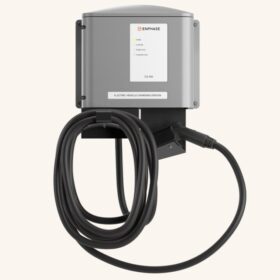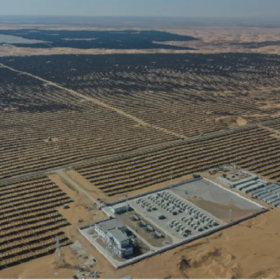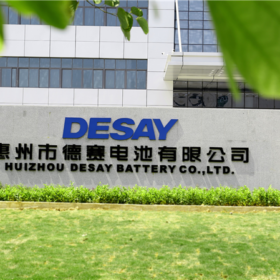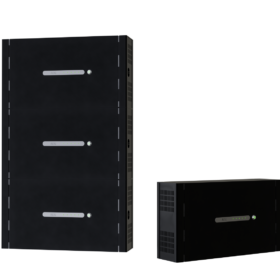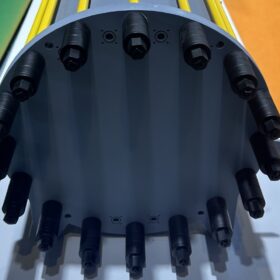Sungrow secures 7.8 GWh battery storage deal from Saudi Arabia
China’s Sungrow has signed three landmark energy storage contracts with Saudi Arabia’s Algihaz Holding, amounting to the world’s largest grid-side storage order. Each project will have a capacity of 2.6 GWh, totaling 7.8 GWh.
Enphase Energy releases EV charger for commercial fleets
Enphase Energy has developed an electric vehicle (EV) charger for commercial fleets. The CS-100 provides up to 19.2 kW of continuous power output and allows fleet operators to set up charging schedules using the Enphase proprietary COSMOS interface.
Energy management market to roughly double in Europe by 2030, says LCP Delta
New analysis from LCP Delta finds Germany is Europe’s top market for home energy management systems and predicts European yearly sales will more than double by the end of the decade.
Energielenker releases ‘self-learning’ energy management system
Germany-based Energielenker has developed a “self-learning” energy management system that controls energy flows in buildings with PV systems, using AI algorithms to analyze data from all relevant components.
China Three Gorges to build 16 GW renewables cluster in Inner Mongolia
China Three Gorges has announced plans to build a 16 GW renewables cluster in China’s Inner Mongolia region, including 8 GW of solar, 4 GW of wind, a 200 MW solar thermal system, a 4 GW coal plant, and a 500 MWh energy storage system.
Philippines announces second microgrid auction for underserved areas
The Department of Energy (DOE) of the Philippines has announced a second microgrid auction for underserved areas, opening in August to support more than 12,000 households.
Desay Battery, Victory Giant Technology partner on China’s largest user-side energy storage project
The project, located in Victory Giant Technology Industrial Park in Huizhou, Guangdong Province, is designed to have a capacity of 121 MW/630 MWh, making it the largest commercial and industrial (C&I) energy storage station in China.
Growatt sees growth in Europe’s C&I solar, storage markets
At The Smarter E Europe event – recently held in Munich, Germany – Growatt shared insights on the European market. It reports a slowdown in the residential segment in Central Europe due to lower demand, but Growatt VP Lisa Zhang said she expects more growth in the commercial and industrial (C&I) solar and storage sectors.
AEG unveils 5 KWh stackable high-voltage battery
Germany’s AEG is selling new stackable, high-voltage batteries with usable capacity of 5 kWh. They come with a 10-year warranty and reportedly have a lifecycle of more than 4,500 cycles.
The Hydrogen Stream: Poland unveils hydrogen strategy
The Polish government has outlined its main objectives for the development of hydrogen, while Tyczka Hydrogen says a damaged compressor from Maximator Hydrogen caused a recent incident at one of its filling stations in Germany.

